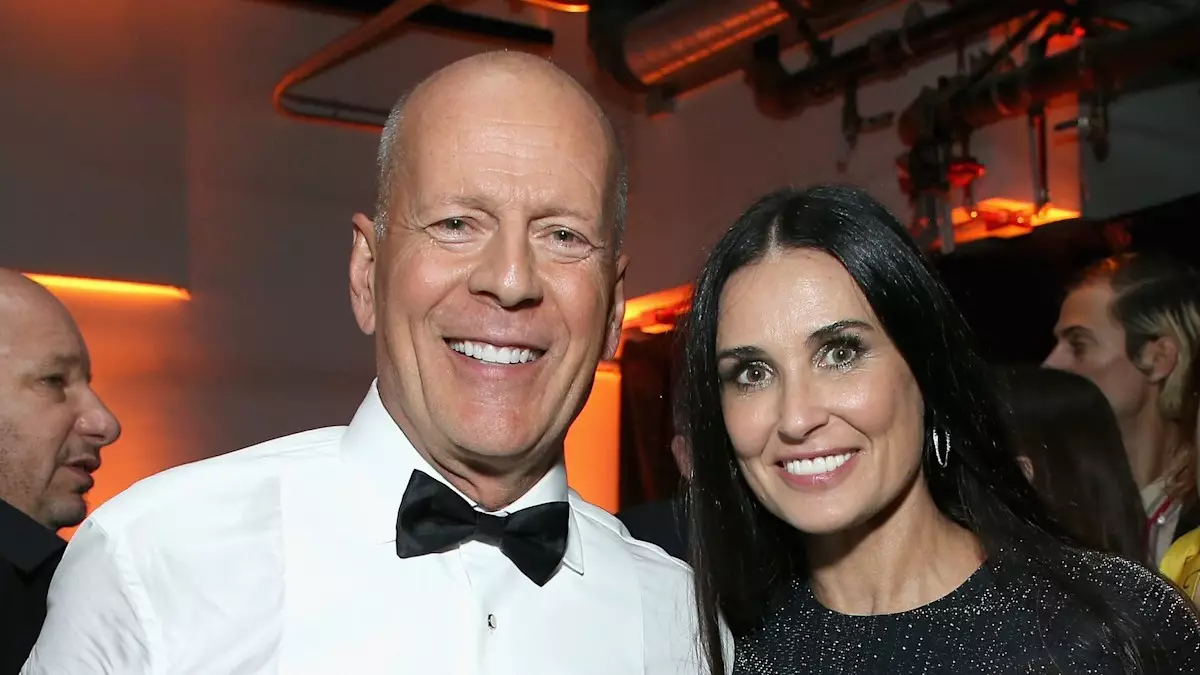Demi Moore and Bruce Willis exemplify how a relationship can transform positively after divorce. Although they parted ways over two decades ago, the former couple has cultivated a supportive and loving co-parenting atmosphere for their daughters: Rumer, Scout, and Tallulah. More impressively, they have maintained a familial bond that resonates throughout their extended family. This setup is particularly poignant now as Bruce navigates the challenges brought on by a dementia diagnosis, illustrating that families can redefine their connections in meaningful ways regardless of marital status.
In a recent conversation with Variety, Demi provided profound insights into their relationship, emphasizing that familial ties persist even as structures change. “We will always be a family, just in a different form,” she shared, reinforcing the idea that love transcends traditional family dynamics. By choosing to show up for each other, Demi and Bruce exemplify resilience. Their commitment sends a potent message that love and support remain paramount, urging others to recognize the possibilities of healthy co-parenting post-divorce.
A Lesson in Co-Parenting
The notion of co-parenting has often been scrutinized and idealized, yet Demi and Bruce have demonstrated that it is feasible to prioritize children’s well-being amidst personal challenges. Their collaborative efforts have extended beyond mere parenting; they actively engage as a family, which is vital as they face Bruce’s health crisis together. This approach underscores Demi’s belief that it is crucial to support one another during difficult times.
Demi’s weekly visits to Bruce signify that their commitment to family transcends the boundaries of divorce. Moreover, she has expressed gratitude for her continuing relationship with his current wife, Emma Heming, and their daughters, Mabel and Evelyn. Demi believes their united front not only reinforces the familial bond but also serves as a source of encouragement for others navigating similar challenges.
“What you do for the people you love,” corresponds with a mature understanding that relationships can metamorphose without losing core values. In an era where divorce is often viewed negatively, the Moore-Willis family stands as a beacon of hope—showing that various pathways can ultimately lead to familial love.
A Struggle with Health Realities
Bruce’s health issues present unique difficulties that challenge traditional family roles. Initially diagnosed with aphasia in 2022, his condition was alarming enough to take him out of the acting field he had thrived in for decades. Unfortunately, a more severe diagnosis of frontotemporal dementia soon followed, underscoring the harsh realities that families often face. This unexpected diagnosis required Emma to have difficult discussions with their daughters about their father’s declining health, marking a poignant departure from the idealistic portrayal of family life.
Drawing on her experience, Emma highlighted the importance of transparency, stating, “I’ve never tried to sugarcoat anything for them.” This candidness is crucial for children to process the situation realistically. It is a testament to the family’s commitment to confronting their challenges as openly as possible while also recognizing the limits of what should be shared. Emma’s care for her children, coupled with the support they receive from Bruce’s ex-wife, emphasizes that love can create a nurturing space even amid hardship.
The Moore-Willis family story offers valuable lessons on maintaining relationships during life’s tumultuous changes, showcasing how love—both romantic and familial—can adapt and persist. Bruce’s battle with dementia, rather than becoming a point of division, has further solidified the ties that bind them all together. As they navigate this new reality, they do so with grace, illustrating that there are many ways to define family and that love doesn’t vanish after divorce.
Ultimately, this family’s journey serves as an inspiration, urging others to rethink co-parenting and familial closeness. Love and commitment can thrive beyond traditional confines, offering hope for those experiencing similar circumstances. The Moore-Willis family is a beautiful reminder that genuine connection remains possible, providing a robust framework for future generations.

